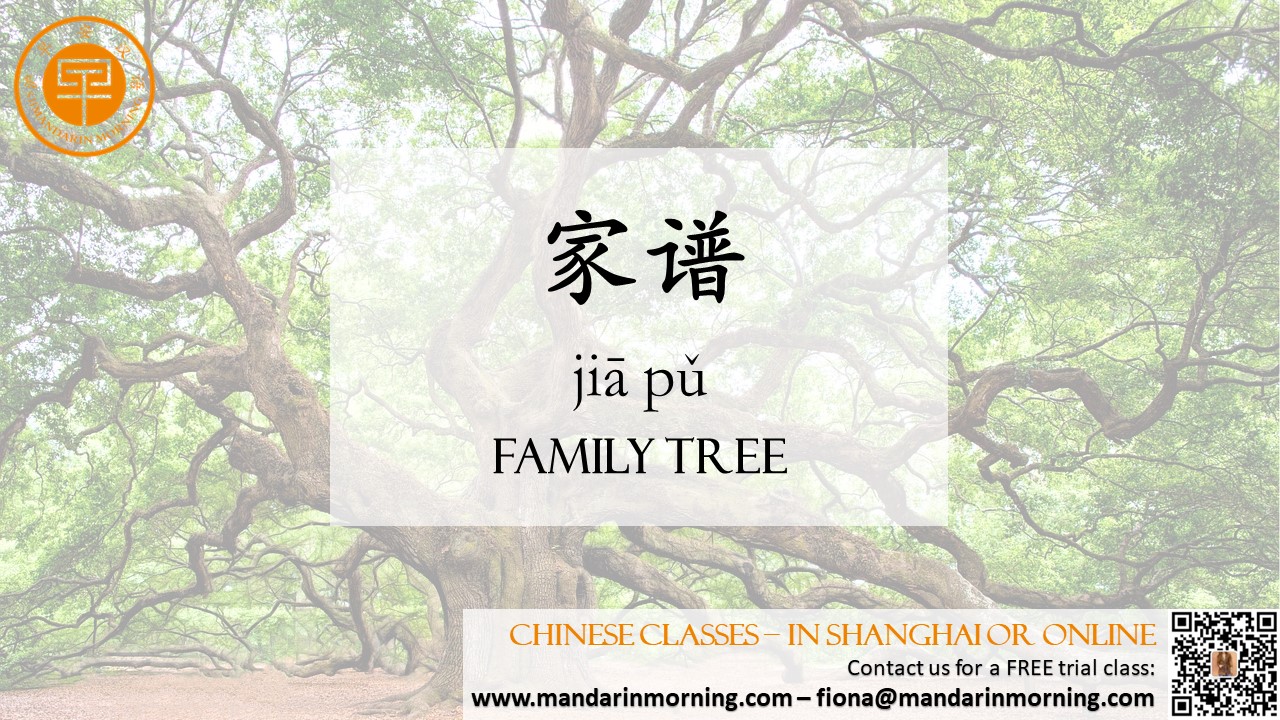The Chinese family tree may seem overwhelming at first, with its many specific terms for different family members and relationships. But don’t worry – we’ve got you covered! This article will help you navigate the 家谱 (jiāpǔ), or Chinese family tree. Chinese Family Tree To start, let’s learn how to say “family” in Chinese: 家庭 (jiātíng) - family; household 家人 (jiārén) - family member 亲戚 (qīnqi) - relatives To mention how many people are in your family, you can say: 我家有···…口人。(Wǒ jiā yǒu·····… kǒu rén) - There are……people in my family. The character “口” (kǒu) is a measure word used to count people in a family. 01. Parents Now let’s take a look at your immediate family members, starting with parents (父母 fùmǔ). 母亲 (mǔqīn) - mother 父亲 (fùqīn) - father These characters are more formal terms, most children call their parents “dad” (爸爸 bàba) or “mom” (妈妈 māma). 02. Siblings Now, let’s take a look at siblings (兄弟姐妹 xiōngdì jiěmèi). 哥哥 (gēge) - elder brother 弟弟 (dìdi) - younger brother 姐姐 (jiějie) - elder sister 妹妹 (mèimei) - younger sister 03. Grandparents Here are the Chinese names of grandparents. 爷爷 (yéye) - grandfather (father’s side) 外公 (wàigōng) - grandfather (mother’s side) 奶奶 (nǎinai) - grandmother (father’s side) 外婆 (wàipó) - grandmother (mother’s side) 04. Wife and Husband When you have your own family, these are the terms to address your partner: 妻子 (qīzi) - wife 丈夫 (zhàngfu) - husband In informal settings, you can use 老婆 (lǎopó) for “wife” and 老公 (lǎogōng) for “husband.” 05. Children 孩子 (háizi) - children 儿子 (érzi) - son 女儿 (nǚ’ér) - daughter 06. Other Relatives Now, let’s level up and learn how to address other family relatives. 伯伯 (bóbo) - father’s older brother 叔叔 (shūshu) - father’s younger brother 舅舅 (jiùjiu) - mother’s brother 姑姑 (gūgu) - father’s sister 姨 (yí) - mother’s sister |